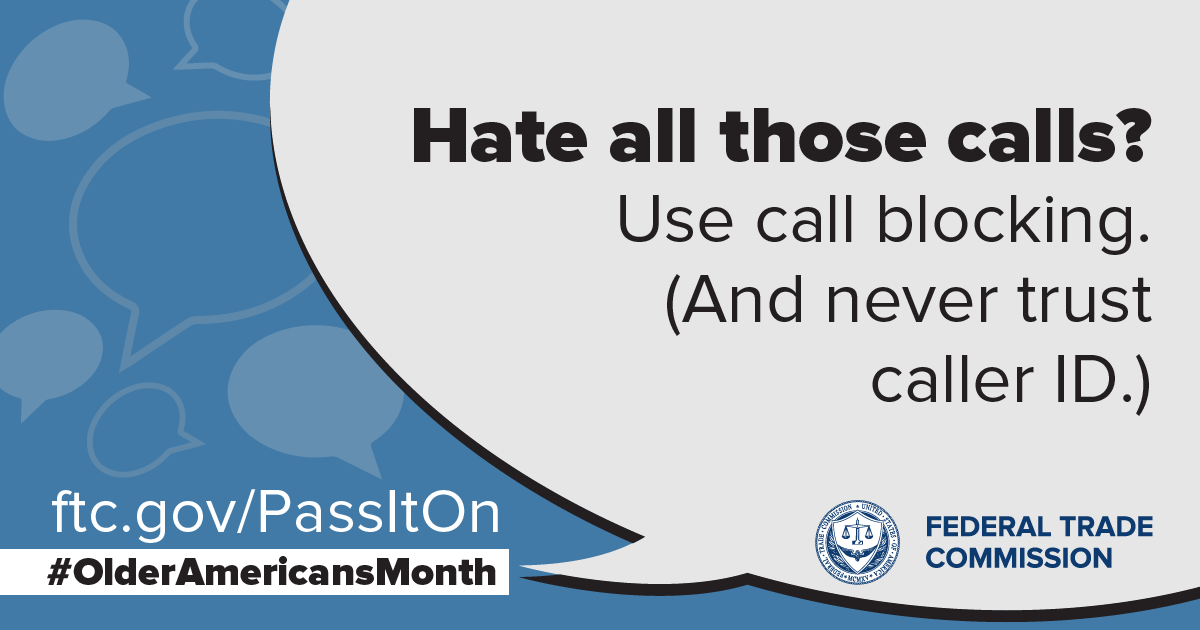 Unwanted calls are annoying. They can feel like a constant interruption — and many are from scammers. Unfortunately, technology makes it easy for scammers to make millions of calls a day. So this week, as part of Older Americans Month, we’re talking about how to block unwanted calls — for yourself, and for your friends and family. To get started, check out this video:
Unwanted calls are annoying. They can feel like a constant interruption — and many are from scammers. Unfortunately, technology makes it easy for scammers to make millions of calls a day. So this week, as part of Older Americans Month, we’re talking about how to block unwanted calls — for yourself, and for your friends and family. To get started, check out this video:
Some of the most common unwanted calls the FTC sees currently include pretend Social Security Administration, Medicare, and IRS calls, fake Amazon or Apple Computer support calls, and fake auto warranty and credit card calls.
But no matter what type of unwanted calls you get (and everyone is getting them) your best defense is a good offense. Here are three universal truths to live by:
-
Don’t trust your caller ID
-
Hang up on robocalls
-
Use call blocking
Visit ftc.gov/calls to learn to block calls on your cell phone and home phone.
The FTC continues to go after the companies and scammers behind these calls, so please report unwanted calls at donotcall.gov. If you’ve lost money to a scam call, tell us at ReportFraud.ftc.gov. Your reports help us take action against scammers and illegal robocallers — just like we did in Operation Call It Quits. In this law enforcement sweep, the FTC and its state and federal partners brought 94 actions against illegal robocallers. But there’s more: we also take the phone numbers you report and release them publicly each business day. That helps phone carriers and other partners that are working on call-blocking and call-labeling solutions.
So share these videos and this call blocking news with your friends and family. Sharing will help protect someone you care about from a scam — and it’ll help them get fewer unwanted calls, too!

